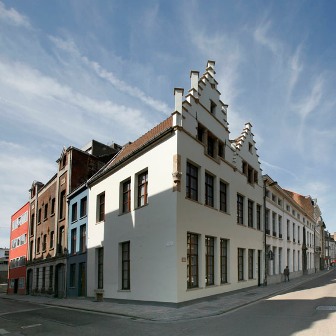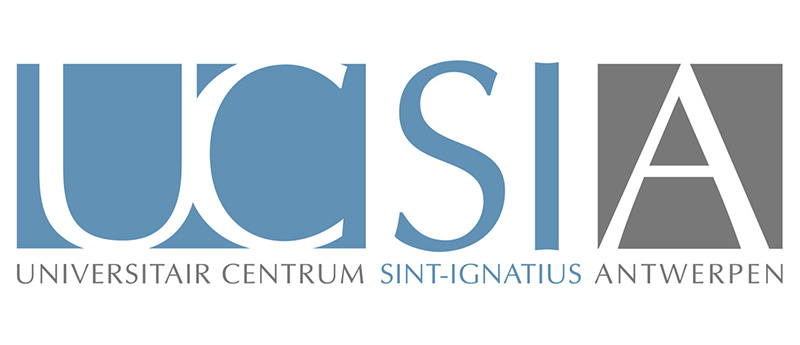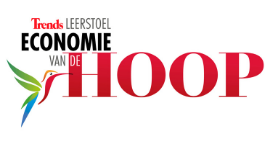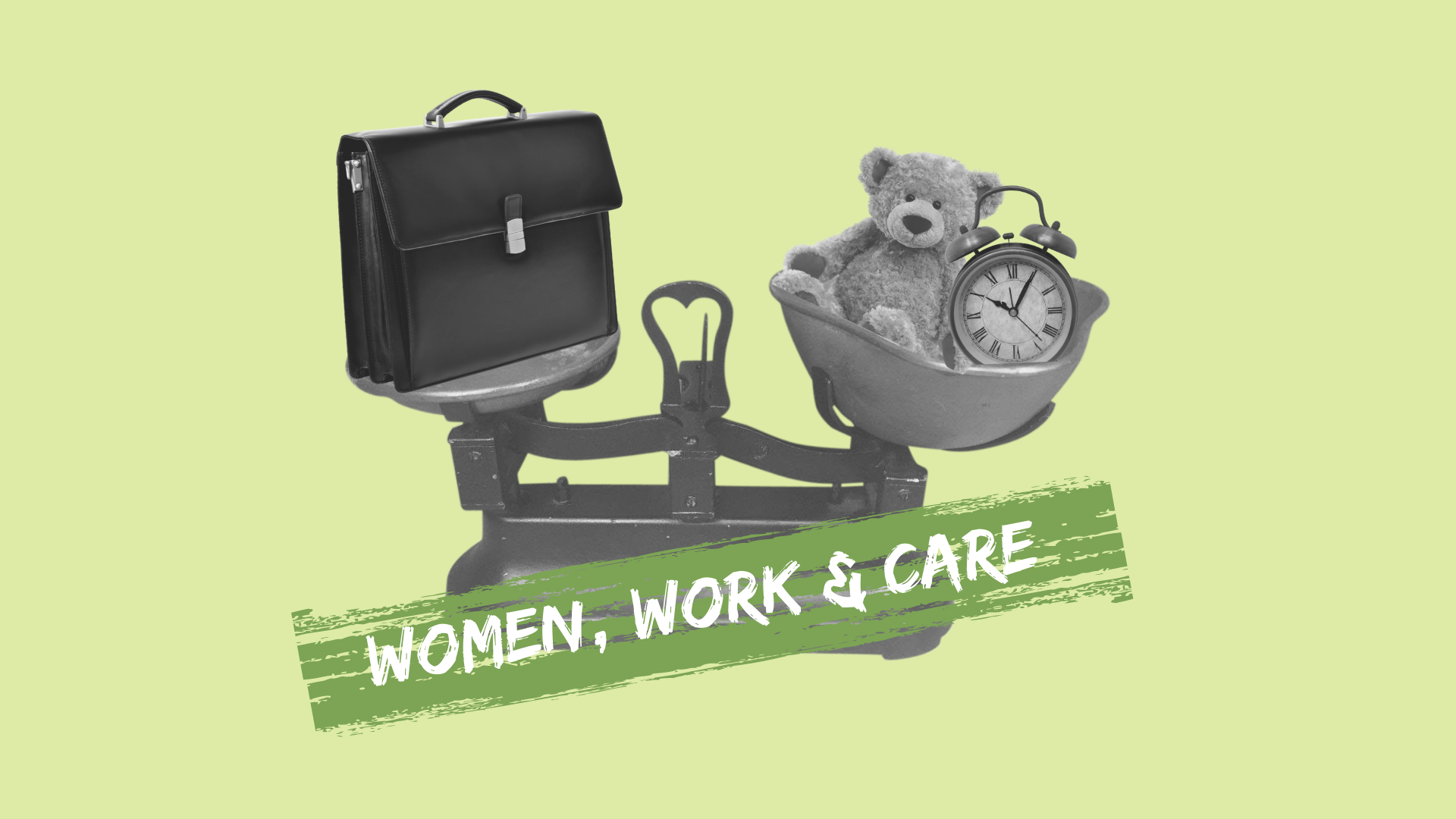
Women, Work & Care.
Towards a New Economic Balance
webinar on 9 November 2020
The COVID-19 pandemic is both a health and a socioeconomic crisis, with very different outcomes by gender. This inequality presents a fundamental challenge to the market-driven economic paradigm that has acquired hegemonic status across the world. Without a more inclusive economic paradigm that values care and makes visible what the market-driven paradigm renders invisible or unimportant, any analyses of the pandemic and proposed responses to it are woefully incomplete.
In her talk, prof. Yana Rodgers (Rutgers University) provides a contextual framework for understanding the gendered dimensions of the COVID-19 pandemic and to highlight some of the emerging evidence on its health, social, and economic outcomes. Her presentation also focuses on how the hardships that women and men face may be mitigated as governments work to contain the virus and rebuild their economies, and how public health, social protection and care systems may be reformed to prevent such wide-scale losses from happening again. She will shed light on how using a feminist economic lens can afford a deeper understanding of the crisis itself, and of policies designed to alleviate its harmful consequences and to build more resilient and gender-equal economies.
As an example of such a policy, Ilse De Vooght from Femma shares the coming about and the results of the experiment of the 30-hour working week, conducted over the past year at the women’s organization.
This was one of two preparatory webinars toward The Economy of Francesco. UCSIA, the Trends Economy of Hope Chair and Economy of Communion Belgium organized the session to foster the dialogue between creative youngsters, researchers and entrepreneurs who are inspired and determined to serve the common good.
Read more…
- on a care-led recovery
- on protecting healthcare workers
- on changes in gender distribution of unpaid care work (short version of article; longer version still under review)
- www.gerichtopevenwicht.be
- article on Sociaal.net (in Dutch)
Speakers
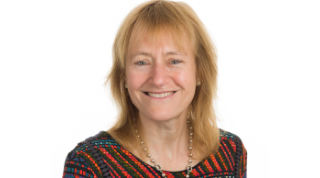
Yana Rodgers
Professor in the Department of Labor Studies and Employment Relations, and in the Department of Women’s and Gender Studies and aculty Director of the Center for Women and Work at Rutgers University; Associate Editor with the journals World Development and Feminist Economics
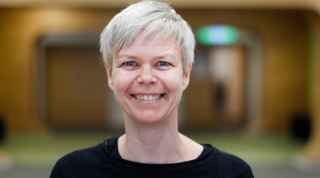
Ilse De Vooght
Policy Officer at Femma
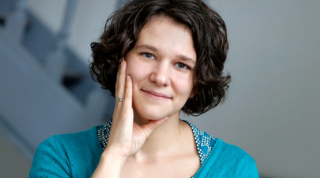
Ellen Van Stichel
Assistant Professor Christian Social and Political Ethics at KU Leuven
Organizers and partners
Trends Economy of Hope Chair
Chair at the University of Antwerp that promotes a social, ecological and meaningful economy.

Economy of Communion Belgium
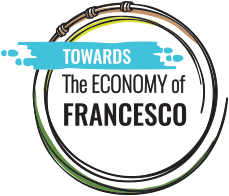
On the 1st of May 2019, Pope Francis called upon young economists, students and entrepreneurs worldwide to re-animate the economy and by doing so, starting a process of global change. In his speech, Pope Francis emphasized again that “everything is deeply connected and that the safeguarding of the environment cannot be divorced from ensuring justice for the poor and finding answers to the structural problems of the global economy”. He has noticed that “few have heard the appeal to acknowledge the gravity of the problems and, even more, to set in place a new economic model, the fruit of a culture of communion based on fraternity and equality”. Therefore, he reiterated his plea of the World Youth day in Panama, “not leave it to others to be protagonists of change”. He invited young people from all over the world to take part in a three-day conference, called The Economy of Francesco, where they could discuss and create new ways of understanding the economy and progress, for combating the culture of waste, for giving voice to those who have none and for proposing new styles of life:
“That is why I would like to meet you in Assisi: so that we can promote together, through a common ‘covenant’, a process of global change. One in which not only believers but all men and women of good will, beyond differences of creed and nationality, can participate, inspired by an ideal of fraternity attentive above all to the poor and excluded.” (Pope Francis)
Due to the outbreak of Covid-19, the conference was first postponed and now redesigned as an online conference on 19, 20 and 21 November 2020. In these past few months, The Economy of Francesco has developed into more than just an event. It has become a movement of young talented people, entrepreneurs, changemakers and economists from all over the world, who are eager to learn, exchange views, and collaborate for a just and inclusive global economy. It is a creative community, which is defining the Economy of Francesco by debating new models for the economy, weaving between the “already” and “not yet”.
In the weeks leading up to the event, UCSIA, the Trends Chair Economy of Hope and the Economy of Communion Belgium are organizing two Towards…-webinars. These are preparatory lectures to foster the dialogue between creative youngsters, researchers and entrepreneurs who are inspired and determined to serve the common good.
The Economy of Francesco puts forward twelve themes or Villages, which encompass the participants’ questions of the future economy. With our Towards…-webinars, we have chosen to put Work & Care, Profit & Vocation and Women for Economy in the spotlight. Featuring eminent international scholars and specific cases, we hope to contribute to the dialogue of The Economy of Francesco.
Further reading:
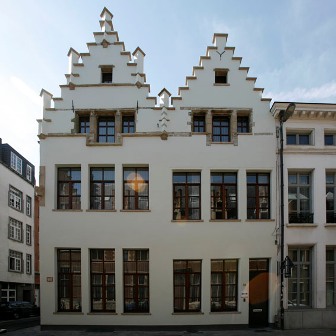
UCSIA
Koningstraat 2
B-2000 Antwerpen
info@ucsia.be
Tel. +32 (0)3 265 49 60
Voorlopige locatie tijdens de renovatiewerken:
Blindestraat 14, 2000 Antwerpen
